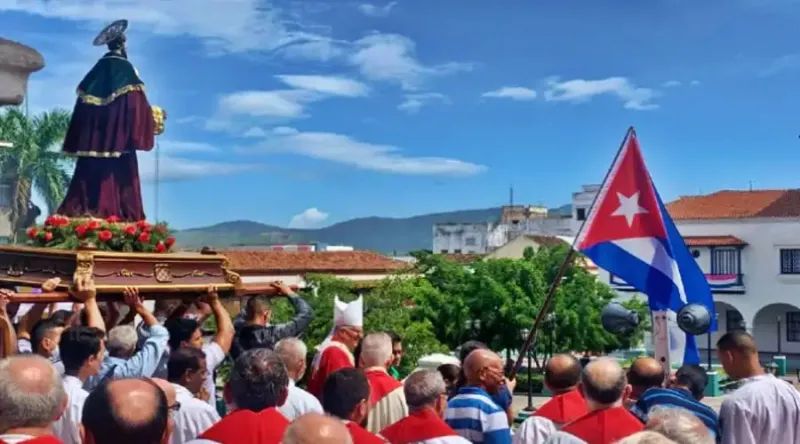
Pakistan tightens its already far-reaching blasphemy laws
 Pakistanis protest Nov. 2, 2018, in Lahore, shortly after the nation’s supreme court acquitted Asia Bibi of blasphemy charges. / AMSyed/Shutterstock.
Pakistanis protest Nov. 2, 2018, in Lahore, shortly after the nation’s supreme court acquitted Asia Bibi of blasphemy charges. / AMSyed/Shutterstock.
St. Louis, Mo., Jan 23, 2023 / 14:45 pm (CNA).
The parliament of Pakistan moved this week to tighten its already far-reaching blasphemy laws, under which numerous Christians and other minorities have been prosecuted and subjected to mob violence, often for dubious charges of blasphemy against beliefs or figures associated with Islam.
Insulting the Prophet Muhammad is already, at least on paper, a capital offense in Pakistan. Under the newest legal changes, those convicted of insulting the Prophet Muhammad’s wives, companions, or close relatives will now face 10 years in prison, a sentence that can be extended to life, along with a fine of 1 million rupees, or roughly $4,500, reported the New York Times. It also makes the charge of blasphemy an offense for which bail is not possible.
Islam is the state religion of Pakistan, and blasphemy laws have been on the books in the country for more than a century, even before it became an independent nation. A notable escalation of the country’s blasphemy laws occurred in 1987 when the death sentence was made mandatory for some violations.
One of the most famous cases in recent years was that of Asia Bibi, a Catholic woman who spent nearly a decade on death row after being accused of disparaging Islam. Numerous world leaders called for her immediate release, including Popes Benedict XVI and Francis. In October 2018, the Pakistani Supreme Court overturned her blasphemy conviction. She subsequently fled the country and reportedly still receives death threats.
Edward Clancy, director of outreach for the papal charity Aid to the Church in Need (ACN), told CNA that each time Pakistan’s blasphemy laws have been changed since the 1980s, they have become harsher. He noted that although the laws are not applied solely to Christians — many Muslims are charged as well — the fact that accusations against Christians are so common in a country that is 97% Muslim means the laws are not being equally applied.
“Any time Pakistan enhances the law or increases the possibility for cases to be brought up, it’s not good for Christians,” Clancy told CNA in an interview.
Clancy noted that even if a Christian is not arrested or prosecuted by the state, accusations of blasphemy can ruin lives or even lead to death, as mobs and vigilantes, stirred up to violence, often take the matter into their own hands. Pakistani authorities, while touting the fact that the government has never executed a person under the blasphemy law, often ignore the many mob killings and disappearances that have taken place after an accusation of blasphemy, he said.
“The punishment is almost never administered by the state, but rather by mob justice,” he noted.
ACN’s primary mission is to support the pastoral life of the Catholic Church, and in the case of Pakistani Christians, this means helping many of the victims of the blasphemy laws in their legal cases, Clancy said. Of great concern, he said, is the difficulties they have faced in finding lawyers willing to argue the cases because they can themselves become targets of a mob. Many of those accused of blasphemy are murdered, and advocates of changing the law have also been targeted by violence.
Clancy said ACN will continue to offer support for those victims of the blasphemy laws in legal and pastoral support. He urged prayers for the Christian community in Pakistan and suggested that people contact their elected representatives about the issue. Pakistan is designated as a Country of Particular Concern (CPC) by the U.S. State Department, a designation that carries with it the possibility of sanctions, but these have not been well applied, Clancy said. He said he worried about the continued strengthening of Pakistan’s blasphemy laws, warning that such laws are making Christianity virtually impossible to practice in Pakistan.
He mentioned a current blasphemy case in Pakistan of two Christian nuns who, in April 2021, were accused of blasphemy after temporarily moving some decorative Islamic phrases from the wall of a hospital room while cleaning the room. Two years later, the women are still under this “prolonged indictment,” he said.
“The evidence is in their favor. The accusation appears vindictive and baseless. Even should these two women be found not guilty, they will not be safe in Pakistan. They and their families will have to flee. With the new laws being broadened, there will be more opportunities for injustice,” Clancy said.
Pakistan’s blasphemy laws are reportedly used to settle scores — even among the most powerful — or to persecute religious minorities. Former Pakistan Prime Minister Imran Khan, who supported the country’s blasphemy laws as a candidate, was himself charged by his successor’s government for blasphemy in May of last year. In November, Khan survived an assassination attempt at a political rally that appeared to be religiously motivated.
Pakistan’s authorities have consistently failed to implement safeguards on behalf of religious minorities, despite numerous policies in favor of economic and physical protections for members of non-Muslim religions. As of 2020, at least 40 people were serving a life sentence or facing execution for blasphemy in the country.




